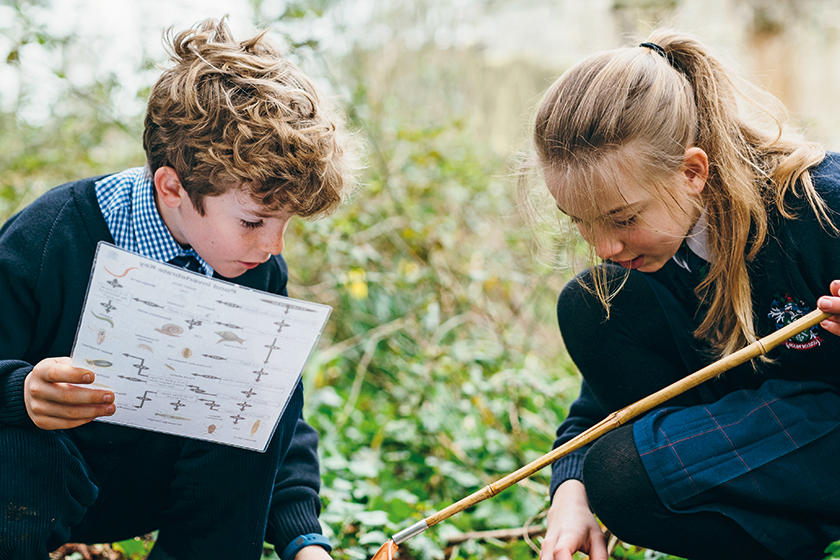It’s Out With The Old And in With The New For Primary Education
By
7 years ago

Shirley Shayler, head of Millfield Prep, advocates a new style of education encapsulated by the International Primary Curriculum

As educators, we must develop our methods of teaching to best prepare pupils for the future and reflect the changing world we live in. We must bear in mind that 65 per cent of pupils who entered primary school in 2016 will work in jobs that don’t exist today.
Learning should not be spoon-fed and purely textbook based; it should be inquiry led, with a curriculum that engages children in global learning, encourages curiosity and broadens their horizons. That is why we introduced the International Primary Curriculum (IPC) in September 2016 for Years 1–5 and why we are extending it to Year 6 from September 2017.
The IPC was a concept originally created nearly 30 years ago and is now taught in 90 different countries. Its aim is to create independent learners who are aware of important issues in the world and will become responsible global citizens. Learning is in thematic-led units, encompassing a broad array of subjects. This year we will study units such as ‘water for everyone’, ‘saving the world’ and ‘do you live around here?’.
The programme starts with a two-week ‘brainwave’ unit, which is the foundation of learning. Pupils look at topics such as how we learn, positive thinking and different teaching methods. A particular highlight for me last year was our Year 4 pupils visiting a Year 8 design technology class to find out whether the teacher was engaging the pupils. They filled out their own assessment forms and discussed their findings. It was a great way to show pupils how they can become engaged in the outcomes of their own learning.
Throughout the curriculum, teachers encourage the development of particular qualities – be that independence, resilience, adaptability, thoughtfulness or cooperation, and they talk to pupils explicitly using that terminology every day. Children are encouraged to work in groups, understand different perspectives and share their learnings in a variety of mediums, from presentations to films and poems. At Millfield Prep, we also engage them in discussions based on current affairs, and if we do not have time to answer all the children’s questions that
day, pupils are encouraged to write them on a post-it note and stick it on the board to discuss later.
The IPC connects the units of study, so children might spend a number of days learning about the geography of somewhere before moving on to the place’s history and then on to something else. For example, in order for pupils to learn about life in third world countries, a class could
be challenged to work in groups to transport a bucket of water for a mile without spilling it. The activity then leads to the opportunity to research water-borne diseases with experiments like filtering water to make it drinkable. Activities such as these give children the opportunity to learn in a hands-on way how different people around the world live. The IPC also encourages self-assessment. ‘Could I have asked more questions?’ This self-review is then assessed by the teacher, encouraging a child to engage with feedback and attainment objectives.
It is paramount that children are taught to work collaboratively, think critically and creatively solve problems. We must play our part in preparing them for life outside of education and most importantly, creating an educational environment and culture where children feel comfortable enough to fail and resilient enough to pick themselves up and try again.



